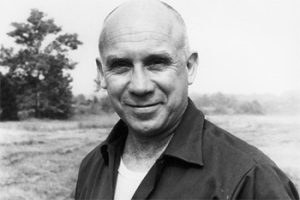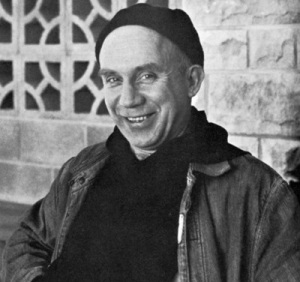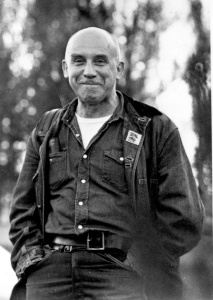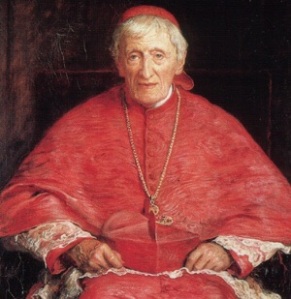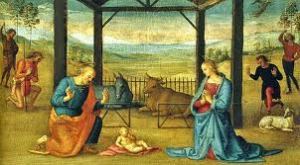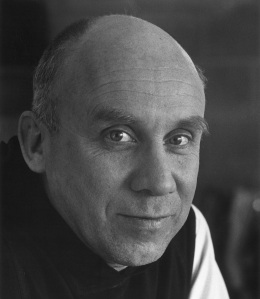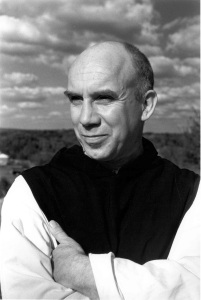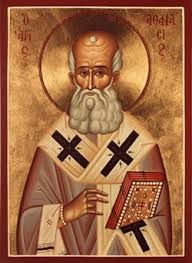
A 7 Quick Takes Post as hosted at This Ain’t the Lyceum
-1-
It is right that creation should exist as he has made it and as we see it happening, because this is his will, which no one would deny. For if the movement of the universe were irrational, and the world rolled on in random fashion, one would be justified in disbelieving what we say. But if the world is founded on reason, wisdom and science, and is filled with orderly beauty, then it must owe its origin and order to none other than the Word of God. St. Athanasius
-2-
I’ve been spending some time at the company I retired from, helping out on various and sundry projects. It’s been fun, in it’s own way, but has taken time away from retirement and recreation. While I’ve enjoyed being there, I’m quite happy to be more or less back to my normal routine, and back to blogging.
-3-
Timothy, of the excellent Catholic Bibles blog, has taken on the challenge of using only one Bible, not one translation but one edition, for reading and prayer for 2015. I think that’s a wonderful idea because it’s a demonstration of the Benedictine spirit of stability, something I struggle with daily. I have a hard enough time sticking with one book to read through to it’s completion, much less one Bible translation, for more than a few days.
As far as Bibles go, I tend to read a passage in, say, the RSV version, and something makes me wonder how that passage might read in the NABRE version, and so I’m off. I just learned about this experiment a few days ago and I’m tempted to try myself but I know I would fail within a week. Besides, it’s already a week into the New Year, so it’s too late. It will be interesting to see how Timothy does with his experiment and if he can last all year.
-4-
There was an interesting piece by Anthony Esolen on the Crisis magazine website about last week, basically, the disappearance of Catholic culture. One thing he talked about, something that might not seem very significant, is calendars that stores used to give out back in the day. He writes,
“I could recall the calendars that my grandmother got from De Rosa’s grocery store. They were Catholic calendars, with Sundays and holy days of obligation in red, names of the saints in black for their feast days, the emblem of a fish for each Friday and the weekdays of Lent, and the mysterious Latin word “Feria” for weekdays without a saint and outside of the great octaves. It was time, sanctified; to be replaced by time, blank.”
Growing up in Detroit, I remember those calendars being given out by stores and I knew, even as a Protestant, that most of the symbols and such used by the calendar makers, were there for Catholics. I was impressed by that, us Protestants got no such special treatment and I, admittedly only vaguely, understood those symbols represented something important. I think the absence of even something so small has had a tremendous role in diminishing the faith of Catholics over the years. The sad thing is that Catholics don’t even know they should be missing these things.
He also offers an interesting explanation of how all this came about: “Intellectuals are the great image-smashers. Sometimes, when they fall victim to the virus of pride, they scorn anything that cannot be reduced to propositions comprehensible to their capacious three-gallon intellects. And things of the body resist that reduction. The Babe in the manger is not a theological proposition.” In a way, the faith is far too simple for what Spiro Agnew once called “pointy headed intellectuals.” It is frustrating.
The article is HERE.
-5-
Sometimes I look around at this world we all now live in and I wonder if there hasn’t been a crazy pill introduced into the water supply of every nation in the West, especially in those used by those in intellectual circles. Here’s just one example from an article in First Things last week about the latest trend in studying English:
“At Stanford, literary scholar and marxist critic Franco Moretti proposes a radical plan for English departments: less reading, more computing. With an ocean of texts yet to be studied, literary-historians must, Moretti argues, adopt the methods of quantitative history, geography, and evolutionary theory.”
REALLY? Can you explain to me why anyone with any sense would want to apply quantitative history study to The Brothers Karamazov? The trend is called “post literacy”, I kid you not. Surely, some time soon, the adults in the room are going to wake up and say ENOUGH. Won’t they?
The article is here, and worth a read. I think.
-6-
I’ve made a great discovery over the last month or so, a quite useful little app that was promoted on some web site or other called “Pocket”. With this app you can save copies of articles you stumble across but don’t have time to read, or that you’d just like to keep in a safe place for future reference. I know, the whole world knows about Pocket, but it was a wondrous discovery for me, so I’m sharing it.
-7-
This is a bit of a warning, there’s going to be a post next week that will be longer than any post I’ve done here so far; I just wanted to provide some brief explanation of what I hope I’m doing with it.
Simply put, I read Fr. James Schall’s book, Another Sort of Learning, again this January, as I have done every January for the last three or four years. This year, I decided to write about it. That’s not quite true, I began to draft a post about it roughly eighteen months ago and just never finished it. Now I have and you’ll get to read it. One of the best things about Another Sort of Learning, is that it has list upon list of really good books that one should read, some of them even appear on my Classic Catholic’s Reading List. The result of all this is that I’ve set myself the goal of reading one of the books on Fr. Schall’s lists each month this year and writing about it here. There, you’ve been warned.
